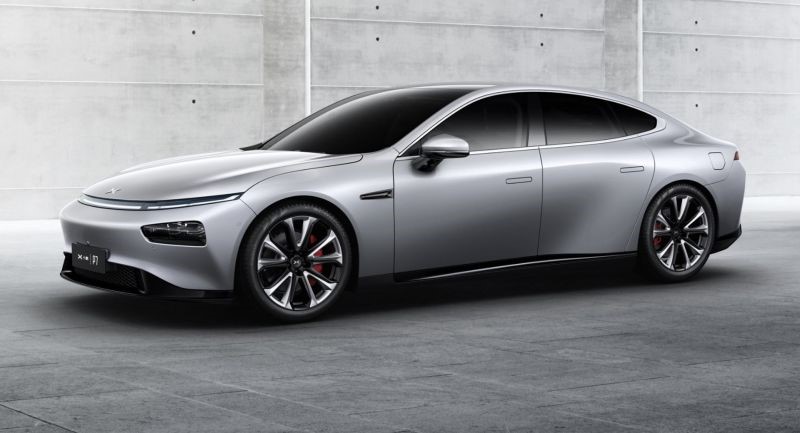
Why Skills-First Leadership Is Replacing the Ivy League Playbook in the C-Suite
The old prestige pyramid—where Ivy League degrees and blue-chip consulting backgrounds paved the way to the CEO seat—is cracking.

January 12, 2021:China’s state-owned banks are ready to support some electric car companies in the country.
Alibaba-backed Xpeng announced Tuesday it secured a credit line of 12.8 billion yuan ($1.98 billion) from major Chinese financial institutions.
Two of the same banks lent up to 11.25 billion yuan to Tesla in 2019 for the development of the factory in Shanghai, according to U.S. Securities and Exchange Commission.
In a state-dominated system like China, the banks prefer to lend to state-owned enterprises. That makes it difficult for privately-owned companies to get financing unless they convince the state-owned banks of their ability to repay loans.
Xpeng’s credit line announcement comes after the company raised more than $4 billion last year in its public offering on the New York Stock Exchange in August and a follow-on offering in December.
The start-up did not disclose details on credit terms on Tuesday. According to a release, the agreement will help the Guangzhou-based company expand its manufacturing, sales and services, and other operations.
Xpeng began building a second factory in November. The company said it had opened 116 retail storefronts and 50 service centers.
Deliveries totaled 27,041 in 2020, with more than half coming from a new P7 sedan that began mass deliveries in late June. The company added it delivered 100 units of its G3 SUV to customers in Norway in December.
Overall deliveries more than doubled from a year ago, Xpeng’s figures fell short of Nio’s more than 43,700 deliveries. Nio’s vehicles have targeted the higher end of the market, while Xpeng’s price range has been lower.
In the last two weeks, both companies announced plans for new sedans. Nio’s is expected to arrive in the first quarter of next year. Xpeng claims its sedan will begin deliveries later this year.

The old prestige pyramid—where Ivy League degrees and blue-chip consulting backgrounds paved the way to the CEO seat—is cracking.

Loud leaders once ruled the boardroom. Charisma was currency. Big talk drove big valuations.

But the CEOs who make history in downturns aren’t the ones with the deepest cuts

Companies invest millions in leadership development, yet many of their best executives leave within a few years. Why?

The most successful business leaders don’t just identify gaps in the market; they anticipate future needs before anyone else.

With technological advancements, shifting consumer expectations, and global interconnectedness, the role of business leaders

At seventeen, Professor Richard Rose stepped into a world few adults dare to navigate: the world of children fractured by trauma. He wasn’t a clinician then, nor a scholar. He was simply a young man with a heart tuned to the quiet ache of others.

Following a distinguished Law Enforcement career Joe McGee founded The Securitatem Group to provide contemporary global operational specialist security and specialist security training products and services for private clients, corporate organisations, and Government bodies. They deliver a wide range of services, including complete end-to-end protection packages, close protection, residential security, protection drivers, and online and physical installations. They provide covert and overt investigations and specialist surveillance services with a Broad range of weapons and tactical-based training, including conflict management, risk and threat management, tactical training, tactical medicine, and command and control training.

Jay Wright, CEO and Co-Owner of Virgin Wines infectious energy, enthusiasm, passion and drive has been instrumental in creating an environment that encourages talent to thrive and a culture that puts the customer at the very heart of every decision-making process.

Fabio de Concilio is the visionary CEO & Chairman of the Board at Farmacosmo, a leading organization dedicated to mental health and community support services. With a deep commitment to identifying and meeting customer needs, Fabio ensures that high standards are maintained across the board.

Leave us a message
Subscribe
Fill the form our team will contact you
Advertise with us
Fill the form our team will contact you